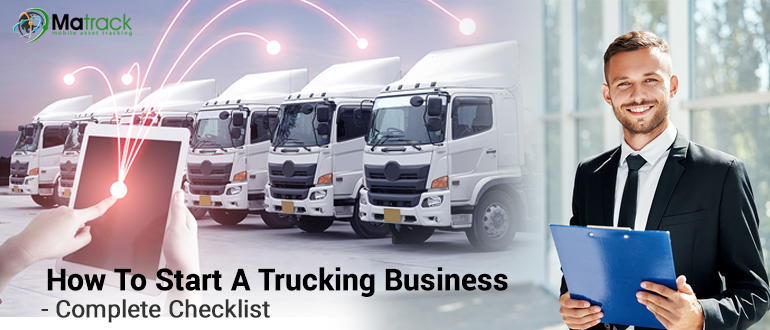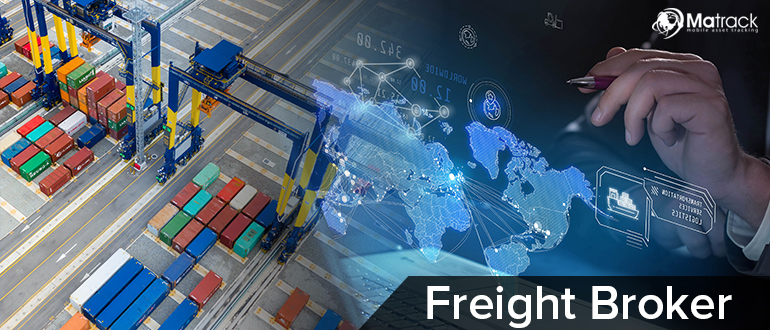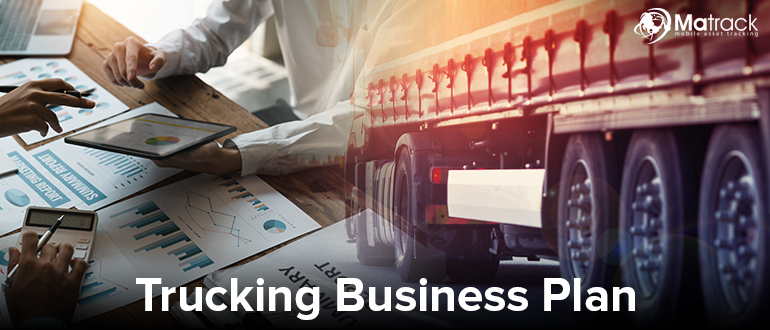Key Takeaways
- Starting a trucking business requires registering your company, obtaining a USDOT Number, MC Number, and securing all necessary permits.
- Setting up operations includes choosing between buying or leasing a truck, obtaining insurance, and managing business finances.
- To generate revenue, you need to find loads through load boards, direct contracts, and freight networks.
- Scaling involves maintaining compliance, managing costs, and reinvesting in fleet expansion for long-term growth.
Starting a Trucking Business Checklist
1. Research the Trucking Industry
Before investing money, understand the industry and its challenges.
- Identify Your Niche: Choose between local, long-haul, refrigerated, flatbed, hazmat, or specialized freight.
- Analyze Market Demand: Research freight rates, industry trends, and competition.
- Understand Operational Costs: Fuel, truck payments, insurance, maintenance, and driver salaries.
2. Develop a Business Plan
A solid business plan is essential for funding and business success.
- Business Model: Decide if you’ll be an owner-operator (driving your own truck) or a fleet owner (hiring drivers).
- Financial Projections: Estimate startup costs, expected revenue, and operating expenses.
- Marketing Strategy: Plan how to attract shippers and freight brokers for steady loads.
3. Register Your Trucking Business
To operate legally, you must register your business and obtain necessary numbers.
- Choose a Legal Structure: LLC (liability protection), Corporation (for scalability), or Sole Proprietorship (simpler, but riskier).
- Get an EIN (Employer Identification Number): Required for tax and banking purposes (Apply via IRS).
- Obtain a USDOT Number: Required by the FMCSA for operating a trucking company.
- Apply for an MC Number: Needed if you operate across state lines.
- Get a Business License: Check your state’s Department of Transportation for local requirements.
4. Secure Required Permits and Licenses
Different permits and registrations ensure compliance with state and federal laws.
- CDL (Commercial Driver’s License): If driving, you need a CDL based on your truck type.
- BOC-3 Filing: Assign a process agent to handle legal paperwork.
- IRP (International Registration Plan): Required for multi-state operations.
- IFTA (International Fuel Tax Agreement): Simplifies fuel tax reporting.
- UCR (Unified Carrier Registration): Mandatory for interstate trucking.
- HVUT (Heavy Vehicle Use Tax): Applies to trucks over 55,000 lbs.
5. Purchase or Lease Your Truck and Equipment
Choosing the right truck impacts your profitability and maintenance costs.
Buying vs. Leasing:
- Buying costs $120,000 – $200,000, offers full ownership but high upfront costs.
- Leasing requires lower initial investment but higher long-term payments.
New vs. Used Trucks:
- New trucks are more reliable but expensive.
- Used trucks cost $40,000 – $100,000, but require more maintenance.
- Essential Equipment:
- GPS tracking & ELD (Electronic Logging Devices) for compliance.
- Load securement tools & safety gear.
Know about: How much does a semi truck cost?
6. Get Trucking Insurance
Insurance protects your business from financial loss in accidents or damages.
- Primary Liability Insurance: Covers accident damages (FMCSA required).
- Cargo Insurance: Protects goods from theft or damage.
- Physical Damage Insurance: Covers truck repairs.
- Bobtail Insurance: Covers liability when driving without a trailer.
- Workers’ Compensation: Required if hiring employees.
- Estimated Cost: $9,000 – $15,000 per truck per year for comprehensive coverage.
Read more: Fleet Vehicle Insurance
7. Set Up Business Finances and Funding
Managing money wisely ensures business sustainability.
- Open a Business Bank Account: Keep personal and business finances separate.
- Apply for Business Credit: Get fuel cards, truck financing, and working capital loans.
Explore Financing Options:
- Equipment Loans: Helps purchase trucks.
- Freight Factoring: Converts unpaid invoices into instant cash.
- Business Line of Credit: Covers short-term expenses.
8. Hire Drivers and Build a Team
Expanding your fleet requires hiring skilled and licensed drivers.
Owner-Operator or Company Drivers: Decide if you’ll drive or hire CDL-certified drivers.
Driver Requirements:
- Valid CDL License
- Medical Certification
- Clean Driving Record
- Drug & Alcohol Testing Compliance
Payroll & Benefits: Offer competitive wages and bonuses for driver retention.
Also see: How To Start A Trucking Company Without Driving
9. Ensure Compliance and Safety
Staying compliant keeps your trucking business operational and avoids fines.
- Follow FMCSA Regulations: Maintain driver logs, vehicle inspections, and maintenance records.
- Install ELD (Electronic Logging Devices): Tracks driving hours and ensures compliance with Hours of Service (HOS) rules.
- Routine Truck Maintenance: Prevent breakdowns and extend truck lifespan.
You might interested in: Best ELD Devices
10. Find Loads and Clients
Consistent freight ensures steady revenue.
- Use Load Boards: Platforms like DAT, Truckstop, and Direct Freight help find loads.
- Build Direct Contracts: Partner with shippers and freight brokers for reliable work.
- Join Freight Networks: Organizations like OOIDA help with networking and advocacy.
11. Market Your Trucking Business
Marketing helps you attract long-term clients.
- Create a Website: Display services, rates, and contact information.
- Use Social Media: Promote your business on LinkedIn, Facebook, and Instagram.
- Register with Google My Business: Makes your business easily searchable.
- Network with Brokers and Shippers: Attend industry trade shows and networking events.
12. Manage Operations and Scale Your Business
Once your business is running smoothly, focus on growth.
- Use Trucking Management Software (TMS): Automates dispatch, invoicing, and fuel tracking.
- Monitor Fuel Costs: Use fuel cards and expense tracking tools to maximize profits.
- Expand Your Fleet: Reinvest profits into buying more trucks and hiring additional drivers.
Frequently Asked Questions
What documents do I need to start a trucking company?
You need a USDOT Number, MC Number, EIN, business registration (LLC or Corporation), BOC-3 filing, IRP registration, IFTA license, UCR registration, and Heavy Vehicle Use Tax (HVUT). These documents allow you to legally operate your trucking business.
Do I need a business license for a trucking company?
Yes, a trucking company requires a business license along with a USDOT Number and MC Number if you operate across state lines. Licensing requirements vary by state, so check with your state’s Department of Transportation.
How much does it cost to start a trucking business?
Starting costs range from $10,000 to $50,000 for an owner-operator, covering the truck, permits, insurance, and initial expenses. If you plan to run a fleet, costs will be higher depending on the number of trucks.
Can you start a trucking business without a CDL?
Yes, you can own a trucking business without a CDL, but you must hire CDL-licensed drivers to operate the trucks. You are responsible for handling business registrations, permits, insurance, and compliance.
How to start a trucking business with one truck?
Register your business, get a USDOT and MC Number, purchase or lease a truck, and obtain insurance. Use load boards or direct contracts to find freight and manage expenses to keep the business profitable.



